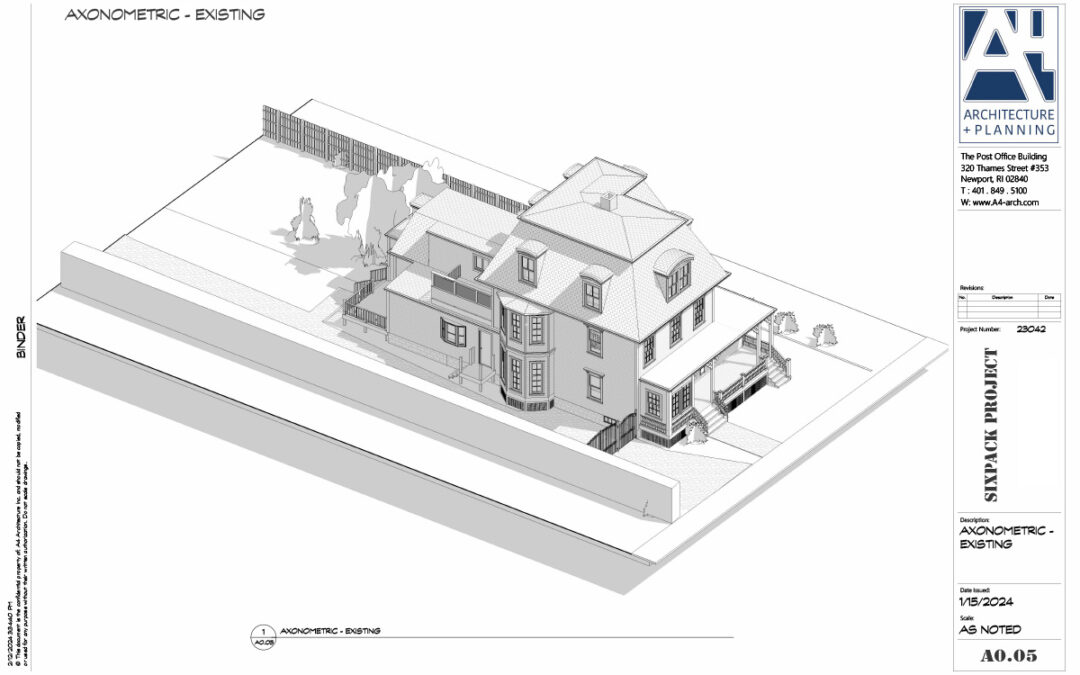Original Condition Axon (Newport, RI)
For an ever-increasing percentage of Americans, the dream of safe, affordable housing remains elusive and the situation in Rhode Island is even more challenging than most places. To understand the current landscape, it is helpful to review the history and various types of affordable housing programs available.
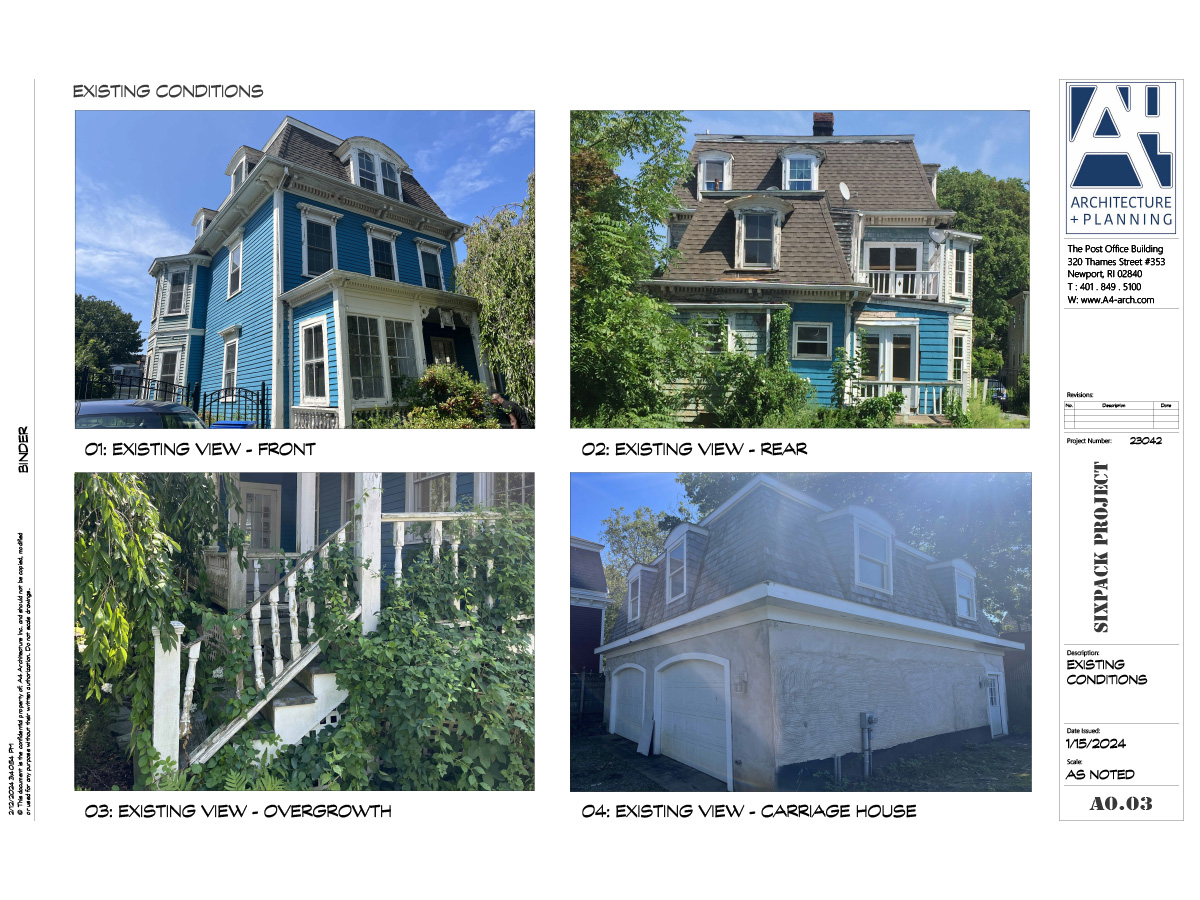
Existing Condition Photos of a Current Project ( Newport, RI)
The Great Depression (1929-1940) exposed the dire need for affordable housing, leading to the creation of the National Housing Act of 1937. This act established the Federal Housing Administration (FHA), which assisted with and promoted home ownership. That same year, the United States Housing Authority (USHA) was formed, which was given responsibility for developing public housing. Early public housing projects faced criticism for concentrating on poverty and failing to provide adequate support services.
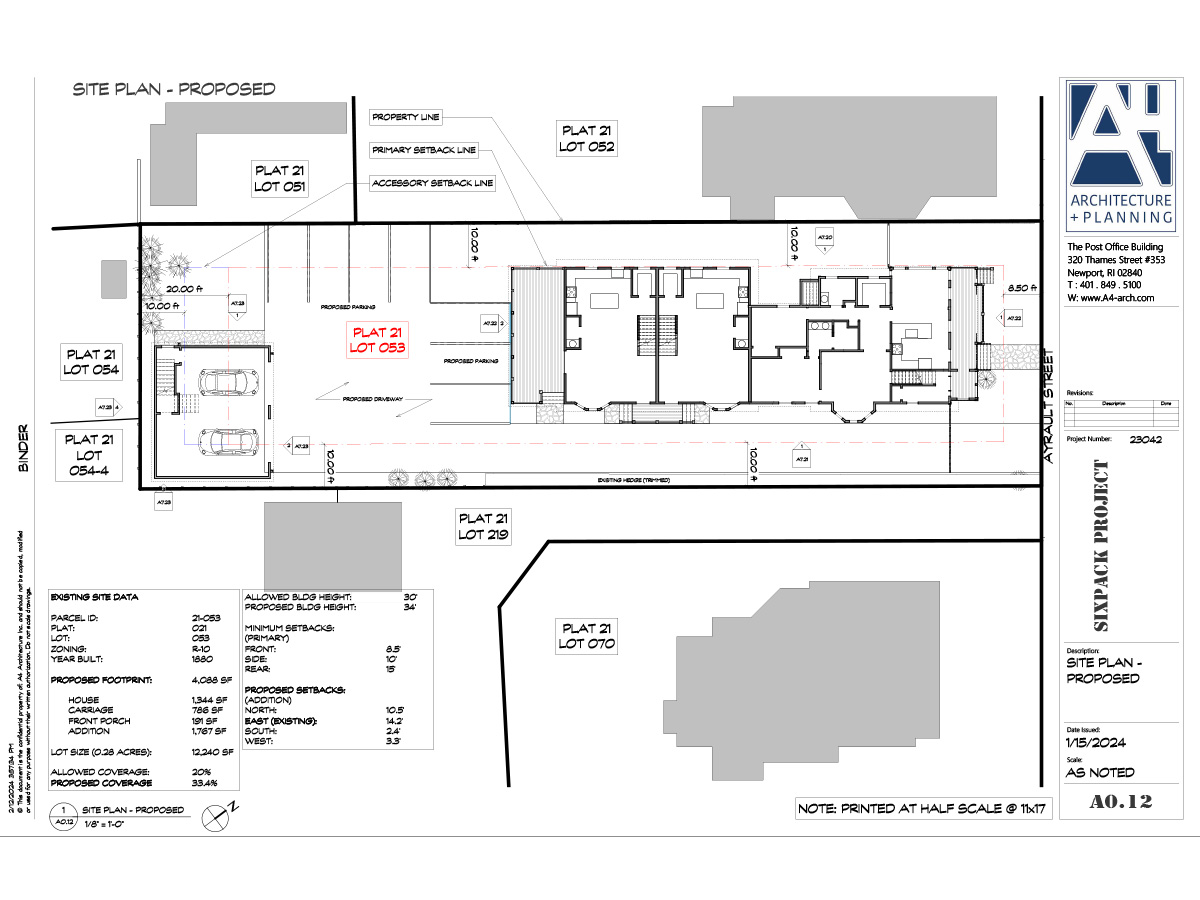
Proposed Site Plan (Newport, RI)
Recognizing these issues, the Housing and Community Development Act of 1974 introduced Section 8 housing vouchers. This program provided subsidies directly to low-income tenants, allowing them to choose rentals in the private market, thereby promoting community integration and economic mobility. While successful in many aspects, challenges include limited funding, landlord participation, and fair housing concerns. This program remains active today and is the backbone of “Big A” Affordable housing.
As housing costs have risen, and the Rhode Island housing stock is converted to second (and even third) homes for out of state owners, a new focus emerged called “workforce housing.” This is often referred to as “small” affordable housing and targets moderate-income earners (like teachers, firefighters, and service workers) who struggle to find housing near their jobs. Rhode Island, with its high cost of living, has seen a greatly increased need for workforce housing initiatives in recent years. These programs include tax breaks for developers, inclusionary zoning requiring a percentage of affordable units in new developments, and public-private partnerships.
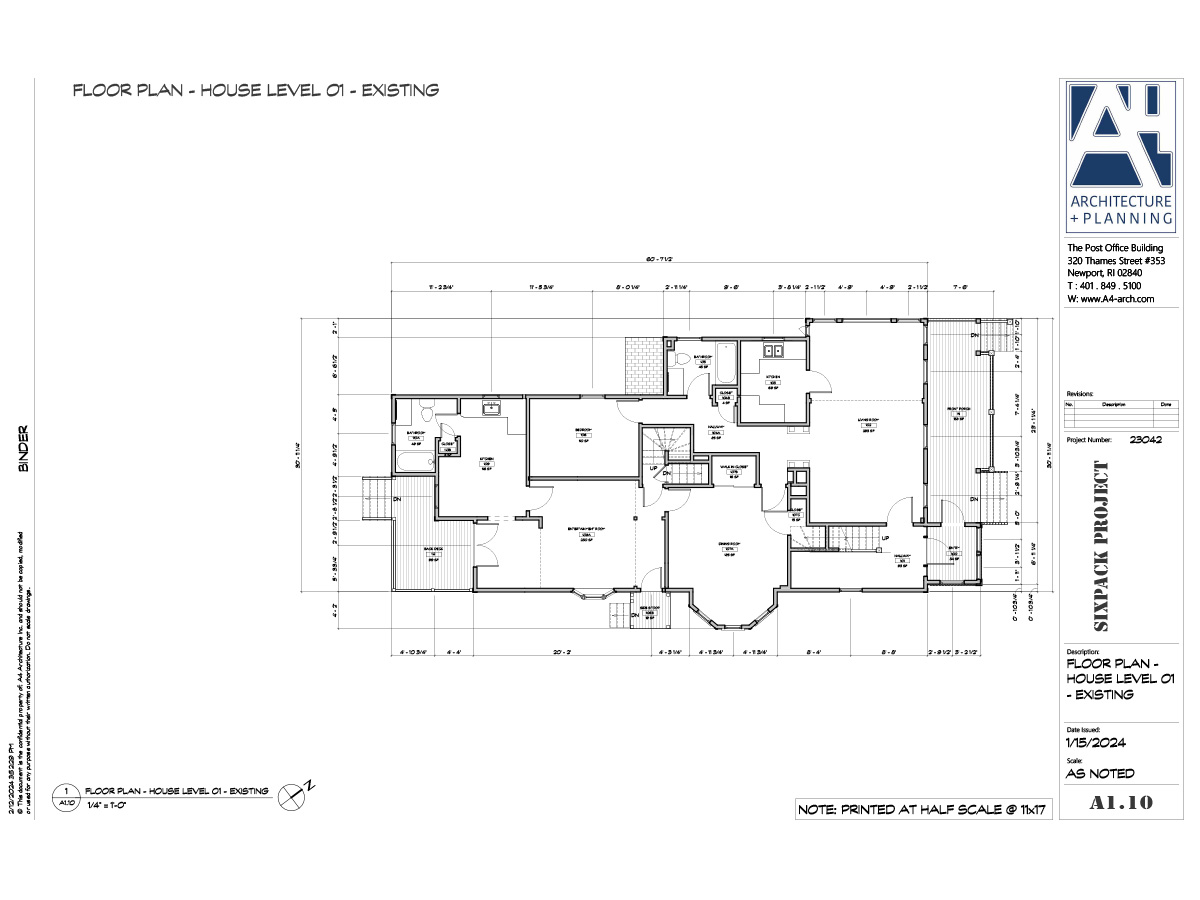
Original First Floor Plan (Newport, RI)
In Rhode Island, affordable housing needs are significant. Over 30% of households spend more than 30% of their income on housing, which is the standard affordability threshold. The state offers a range of programs tailored to its specific needs:
–Rhode Island Housing (RIH): This state agency administers various programs, including rental assistance, homeownership initiatives, and development financing for affordable housing projects.
–Low-Income Housing Tax Credit (LIHTC): This federal program provides tax credits to developers who build affordable housing, creating crucial funding opportunities.
–Public Housing Authorities (PHAs): These locally-based agencies manage traditional public housing units in Rhode Island, providing subsidized rent to low-income families.
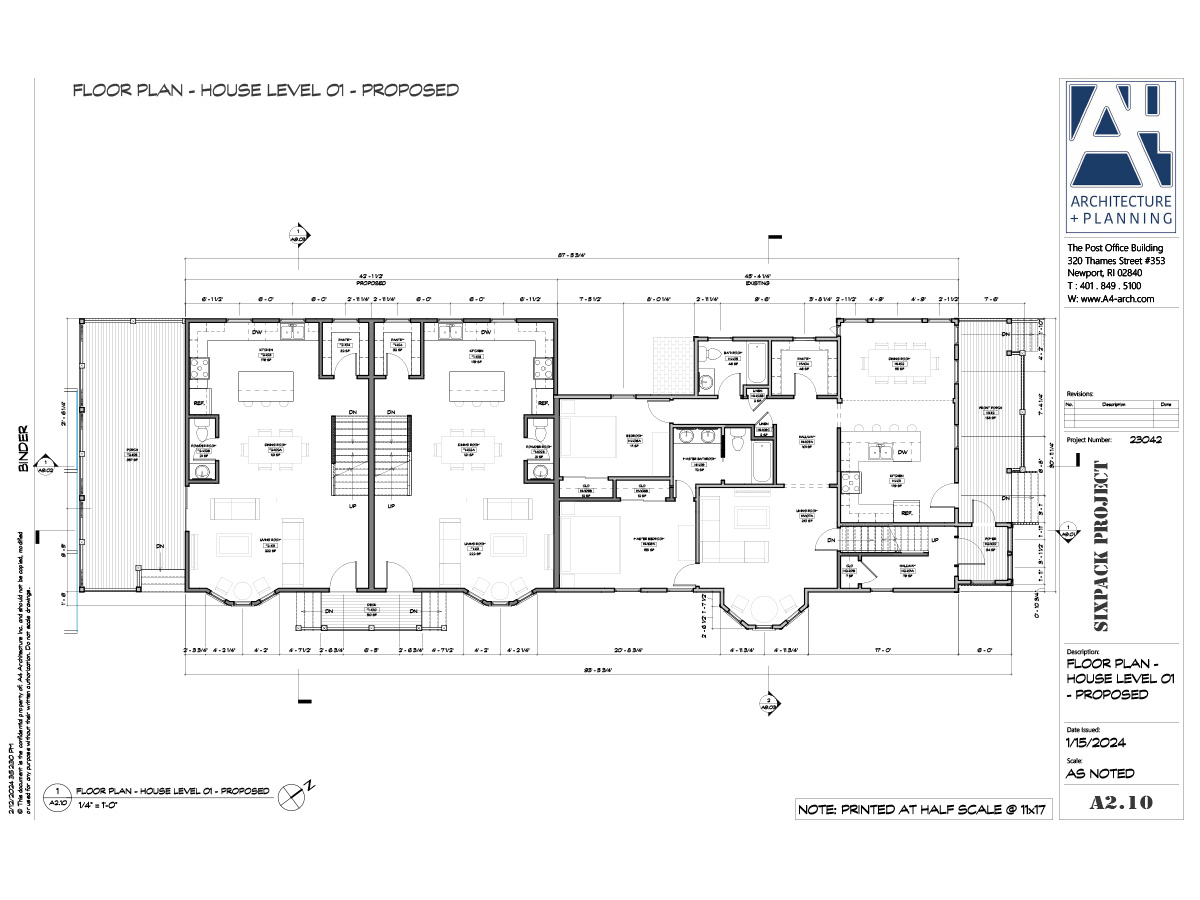
Proposed First Floor Plan (Newport, RI)
Despite these efforts, many challenges remain to create the housing the state requires. Limited funding, rising construction costs, and NIMBYism (Not In My Backyard) attitudes have hindered progress. However, innovative solutions are emerging, such as tiny homes, micro-apartments, and mixed-use developments incorporating affordable units are being used to address the shortages. The recent statewide Act 6061 was targeted to help ease zoning obstacles that prevent the creation of new housing in many communities throughout the state.
While challenges exist, Rhode Island and the nation are undertaking innovative approaches to ensure everyone has access to safe, decent, and affordable housing. It’s a continuous effort, requiring dedicated resources, collaboration, and a commitment to building inclusive communities where everyone can thrive. A4 Architecture is helping design projects which, although compact in size, fit beautifully into the surrounding environments and help make the state more accessible and livable for young earners and families.
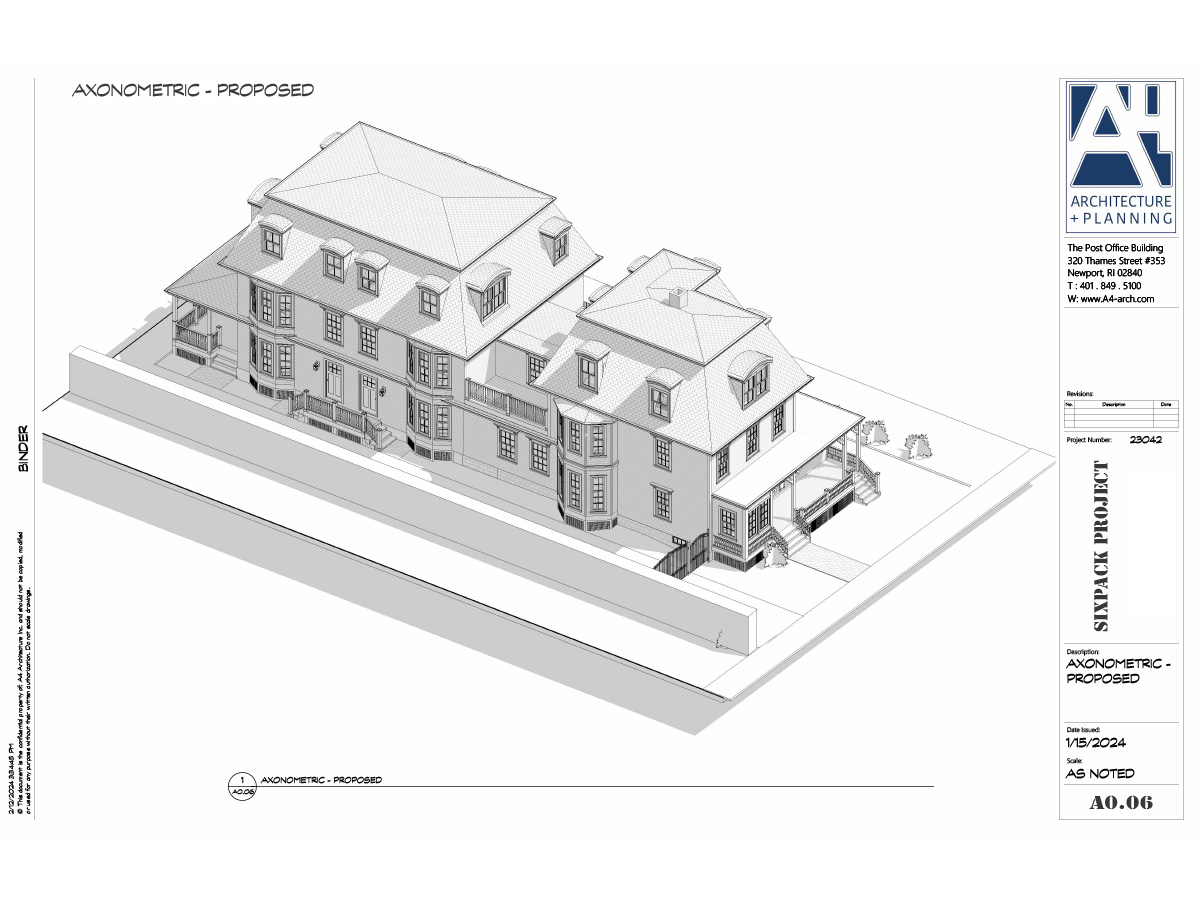
Proposed Axon (Newport, RI)
Looking to remodel your home? Let’s connect.
Join the Architectural Forum to stay up-to-date with architectural news from Rhode Island and abroad.
Ross Cann, RA, AIA, LEED AP, is an author, historian, teacher and practicing architect living and working in Newport, RI. He holds degrees in Architecture and Architectural History from Yale, Cambridge, and Columbia Universities. He is a Leadership in Energy and Environmental Design Accredited Professional.
At A4 Architecture + Planning we are expert at integrating building codes into our designs to provide safer and more long-lasting building solutions for our clients. If you are interested in learning more about what can do for you reach out to us at any time!
